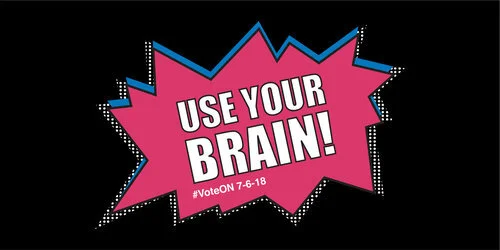In this edition of Bust Bias, we explore an ad from Absolut Australia that connected deeply when we screened it to an audience in Toronto.
Read MoreIn our first ever Bust Bias post, we take a look at Bodyform UK’s #wombstories ad — a raw and unfiltered piece about a host of issues that often sugar-coated in traditional advertising.
Read More20 cognitive biases that are screwing up your decision making — and how to recognize them.
Read MoreTo keep our research studies safe for our staff and community members, we’ve implemented a number of changes to our processes. Here’s what you need to know.
Read MoreWhat we found when we analyzed the brains of Canadian sports fans to IPL star Rohit Sharma
Read MoreReal Madrid’s music video for their new 2019-20 away kit shows the strength of their global appeal.
Read MoreWhat we found when we looked inside the brains of Germans when they watched David Hasselhoff.
Read MoreA look at some of the worst behaviour by Brainsights community members as told in the style of the hit TV show “The Blacklist.”
Read MoreAt Brainsights, we've always viewed things a little bit differently. We don't view the thousands of people who have exchanged their brain data for value with us over the years as a mere pool of potential 'participants'. Rather, we see them as members of an ever-growing community.
Read MoreWith his music video for This is America, Childish Gambino has delivered one of the most thought-provoking pieces of 2018. This video stems into a larger conversation about the social injustices that plague American society today — systemic racism, police brutality, and gun violence.
Read MoreSocio-political issues that matter to Torontonians can spark local debates, on- and off-line but what does the subconscious brain say? Since the subconscious is the part of the brain where decisions are made, Brainsights deployed its audience brain measurement platform to better understand what issues really matter to Toronto voters ahead of the municipal election on October 22nd.
Read MoreIf you've been following our Ontario provincial election coverage, you know that we're committed to helping voters understand their subconscious biases so that they can make a more informed decision when they vote. With that in mind, we wanted to explore the impact of personal appeals to voters. We'll use PC candidate Doug Ford as the case study.
Read MoreVoting is one of the most important processes we can participate in as citizens of a well-functioning society. But, before checking that box on the ballot, we have a responsibility to inform ourselves before making a decision. Information on the candidates themselves are plentiful, but we make decisions on more than just facts - emotion and bias also play important roles in our decision-making process.
Read MoreIt’s four years since the World’s Biggest Brain Scan, our first official public event. Held from April 4-6, 2014 at the University of Toronto, our objective was to understand Millennials, and our ambition was huge – we would run the biggest-ever brain scan, recording the brain wave activity of 300 Millennials.
Read MoreFrom Osheaga passes to Arsenal tickets, being a Brainer is a no-brainer. In August, one lucky Brainer from our London community received a pair of tickets to attend the sold out Premier League match between Arsenal and Leicester at Emirates Stadium in London.
Read MoreTo say that music evokes some of the most visceral emotions we have as humans would hardly be considered a controversial statement. And music fans are often highly opinionated when it comes to what they love or hate. That being the case, Brainsights recently set out on a mission to tackle a controversial question: “How can we determine a band's biggest fan?”
Read MoreThe polls got it wrong. Even the most famous and generally accurate ‘poll of pollsters’ got it wrong. Instead of a Clinton landslide, we witnessed a Trump victory. And the pitchforks are out.
Read MoreIt’s plagued the Democratic candidate throughout the campaign, an issue that Trump has pressed relentlessly to assert his claims of Hillary’s corruption. But is there anything we can learn from neuroscience regarding how much the email scandal hurts Hillary? And what happens now with the announcement by the FBI director of fresh material to consider?
Read MoreFew people have captured the imaginations of Canadians quite like Terry Fox. But is that what their brains say? As a kid growing up in the 1980s and 1990s, the presence of Terry Fox was as familiar and ubiquitous as pizza and donut days at school. Each September, young and old alike lined up to run in Terry Fox’s memory and raise money for his cause (cancer research, a cause to which so many of us have a personal connection).
Read MoreOne year ago this month, Microsoft Advertising released a study exploring consumers’ shrinking attention spans. In it were details of how social media and mobile device addiction were re-shaping how our brains work — how we’re able to pay attention (or not) in the face of proliferating media and consumer technology. Brainsights ran a big portion of that research for Microsoft, measuring the brain activity of more than 100 adults as they performed a range of tasks and consumed a range of content across various screens.
Read More



















